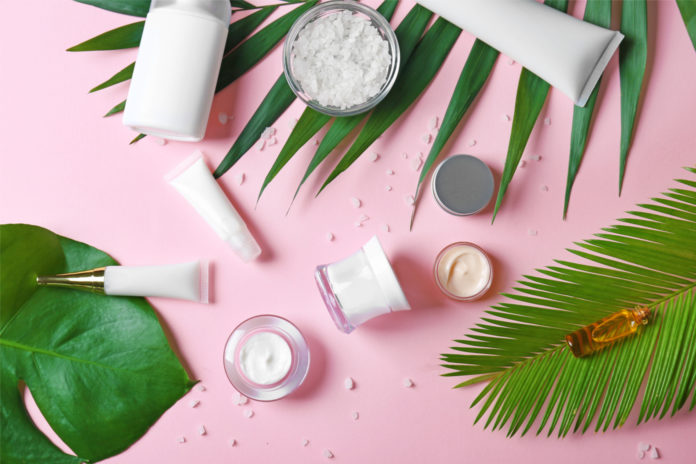CBD sales have been growing at a fast clip for several years, jumping from 2 percent of the legal cannabis market in 2014, to 11 percent in 2018. But that’s nothing compared to what’s coming, thanks to fresh marketing of CBD as a wellness product.
The 2019 CBD Market Monitor from BDS Analytics and Arcview Market Research projected sales of CBD will accelerate to $20 billion by 2024, more than five times 2018’s haul of $1.9 billion. Right now, about two-thirds of CBD sales come from dispensaries, with a focus on medicinal and adult-use products, particularly edibles, pills, tablets, and tinctures. The BDS/Arcview report estimated grocery and drug stores account for a meager 3 percent of sales. But that’s changing rapidly, in large part due to a new category that’s gaining traction: wellness.
CBD is a newly designated lifestyle product that promises consumers a general sense of well-being along with its pain-fighting and anti-inflammatory qualities, all without the “high” effects associated with CBD’s sister extract, THC. And lifestyle products feel less prescriptive, more luxurious: bath bombs, scented lotions, delicious snacks and teas, pet goodies, and fizzy drinks.
The wellness category is expected to be one of the biggest drivers over the next few years, as the number and variety of CBD products explode. It’s a clear example of how far hemp, and its main derivative CBD, have come in a very short time—moving from illicit product to a presence in multiple consumer categories over a handful of years.
What made the change possible was passage of the 2018 Farm Bill, which decriminalized hemp and its extracts, cannabinoids, and derivatives. The bill also explicitly allows hemp to cross state lines. It’s a game changer for the CBD market because it makes CBD products legal across the country and easily accessible to the average consumer. Shoppers are starting to see CBD products at their local pharmacies, beauty product shops, and grocery stores. Buying them no longer requires a special trip to a dispensary, nor are they limited to people who live in states where cannabis prohibition has been lifted. In the not-too-distant future, you’ll be able to throw a case of CBD-infused tea into the shopping cart with your milk and eggs or pick up an anti-inflammatory cream while you’re filling the gas tank.
For the industry, it means thinking about CBD in a whole new way. Suddenly millions of potential customers have unprecedented access to CBD, and they are eager to sample a variety of appealing goods. It’s not about needing anymore, it’s about wanting. Smart companies will rethink their advertising and marketing strategies and start directing resources into the wellness space.
Products that lean into health and wellness need to be developed to take advantage of this newly opened space. Part of their function will be to get consumers used to CBD—to grow accustomed to seeing CBD products readily available and in use daily by themselves and their friends. That’s necessary because it helps pave the way for the development of national brands, which is increasingly important as the market becomes more sophisticated. In fact, about 45 percent of legal cannabis sales already are branded products. In Colorado, that number jumps to 96 percent, according to the Market Monitor report. Until now, growing a national brand has been hampered by federal prohibition, which means there’s been no access to a nationwide customer base, among other hurdles.
But companies can now start to gain consumer recognition if they market to the wellness corner. Once CBD penetration rates get above 30 percent in a market, consumers become more open to, and actually more interested in, trying THC, according to the Market Monitor report. Legalization is virtually inevitable, as BDS/Arcview found that 80 percent of U.S. and Canadian adults now support legalizing cannabis in some form. And as brands develop customer loyalty through their personal care CBD products at CVS and Sephora, they’ll have a head start when it eventually comes to selling their THC-laden cannabis products.
What consumers are looking for will depend on the time of day and even the day of the week, so there needs to be an array of options to accommodate a range of needs, including beauty, relaxation, and overall feeling of well-being. Companies also will be looking to ensure a positive first experience—so all these new consumers become regular ones.
Jason Vegotsky is chief revenue officer for KushCo Holdings. An entrepreneur with an extensive background in sales and business development, he graduated from Bucknell University with a Bachelor of Arts in economics. He is passionate about implementing processes, improving strategy, and increasing revenue. Prior to KushCo, Vegotsky was the co-founder of Summit Innovations Inc., and the driver of the company’s business development. As CRO, leading the company’s main business unit, he leads a team of more than forty-five professionals working in sales, operations, shared services, and project management. He also is responsible for expanding the company’s physical presence nationwide in every major cannabis market.



